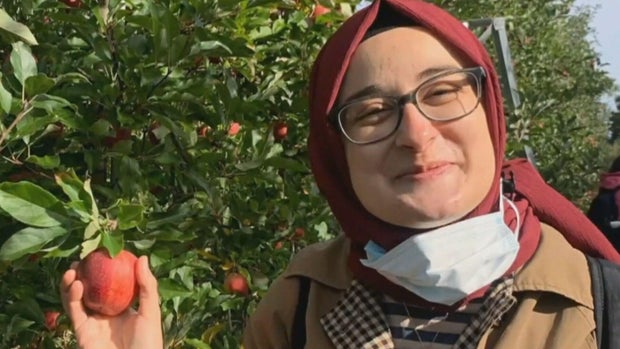In a recent legal showdown in Washington, a federal appeals panel evaluated the sensitive cases of two international students facing removal from the United States following their critical expressions against Israel. The legal entanglement underscores the growing complexities at the intersection of immigration law, free speech, and international politics, marking a significant episode in the broader narrative about governmental reach and personal liberties.
This judicial review embroiled Rumeysa Ozturk and Mohsen Mahdawi, students from Tufts University and Columbia University respectively. Their cases gained prominence after controversial detentions by U.S. Immigration and Customs Enforcement, propelling them into the spotlight of federal appellate scrutiny. The legal odyssey unfolded when the Trump administration appealed against two separate rulings by federal judges, which temporarily favored the students by stalling their deportations.
The appeals were deliberated by a trio of judges at the U.S. Court of Appeals for the 2nd Circuit, comprising Judges Barrington Parker, Susan Carney, and Alison Nathan. These judicial authorities weighed the administration’s plea to pause the lower court orders that favored Ozturk and Mahdawi, until a final decision on their respective challenges to detention is concluded.
Diving into the specifics, Rumeysa Ozturk, a Turkish doctoral candidate, found herself ensnared in legal troubles after penning an opinion piece in her university’s student newspaper. In her editorial, Ozturk criticized Tufts University’s handling of resolutions aimed at holding Israel accountable for alleged breaches of international law. The substance of her criticism did not sit well with authorities, resulting in the revocation of her student visa and subsequent arrest near her residence in Somerville, Massachusetts, in late March.
Marco Rubio, the U.S. Secretary of State, indicated that similar actions were taken against at least 300 students nationwide, accused of undermining U.S. foreign policy by either supporting Palestinians or participating in campus demonstrations. This mass visa revocation underscores a stark escalation in governmental actions against what it perceives as national security threats, a policy that blurs the lines between national security prerogatives and individual rights.
In the legal arenas, U.S. District Judge William Sessions intervened in Ozturk’s case, ordering her transfer to Immigration and Customs Enforcement custody in Vermont and setting a bail hearing. Ozturk’s legal representation argued the arrest and ensuing detention raised substantial constitutional questions involving the First Amendment and due process rights under the Fifth Amendment.
Parallelly, Mohsen Mahdawi’s predicament also captured judicial attention when his aspirations for U.S. citizenship were truncated by a strategic detention during what was supposed to be a routine interview. Mahdawi, a philosophy major and an active member of Columbia University’s Palestinian Student Union, was suddenly detained by immigration agents in Vermont, spotlighting the administration’s hardened stance on pro-Palestinian activism.
District Judge Geoffrey Crawford’s ruling favored Mahdawi, ordering his release from immigration detention and preventing his removal out of Vermont while his immigration proceedings lingered. This judicial relief, however, was contested vehemently by the administration, emphasizing Mahdawi’s sustained influence within activist circles and his potential to skew public perception against U.S. foreign policies in the Middle East.
The appellate court’s responsibility was monumental, as it had to balance the urgency of national security concerns against the fundamental rights afforded in the U.S. Constitution. Arguments presented revolved around the nuances of jurisdiction, the appropriate recognition of custodians in habeas corpus petitions, and the weight of constitutional freedoms against administrative discretions.
As the cases proceed methodically through the judicial system, with implications likely to ripple outward, the core issues at stake—freedom of expression, the right to due process, and the expansive reach of executive power—remain precariously poised. Each judicial determination in these cases not only impacts the lives of Ozturk and Mahdawi but also sets precedents that will influence how similar cases are adjudicated in the future, particularly under the charged political atmosphere surrounding U.S.-Middle East relations.
The controversy echoes broader themes of governmental authority vs. individual liberties—a dialogue that is central to the American legal and political ethos. The unfolding of these cases will undoubtedly provide further fodder for this ongoing debate, reflecting deeply on the intricate balance of power, justice, and fundamental human rights in the contemporary United States.









